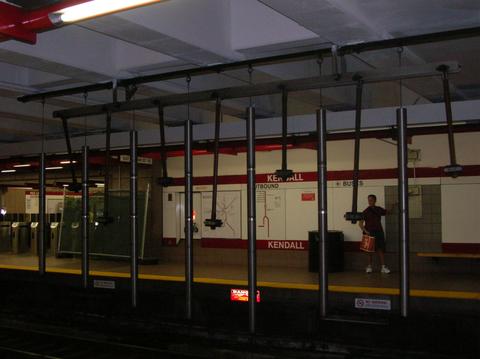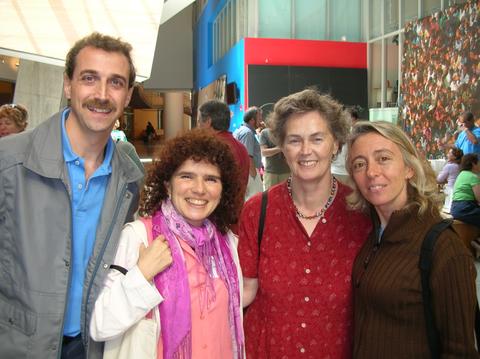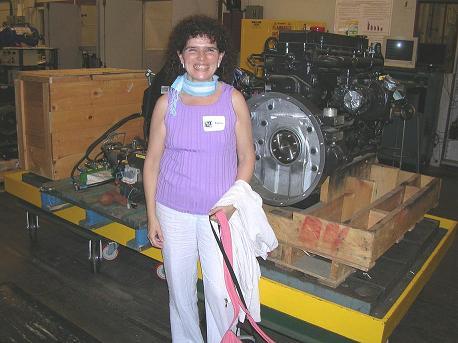| INICIO | CURRICULUM VITAE | 2009 - 2010 | e- mail | LINKS | ENGLISH |
Workshop presented for NEST teachers at MIT - 2006. |
||
|
Patricia Monzón Teachers working in groups
were challenged to create an artistic production (AP) using a short
story, comic, poem, etc., for one of these science projects: Math, Chemistry,
Physics, Biology or Environmental Science. Discussion followed on best
methods and how teachers can use the AP to teach these subjects. If you are
interested in applying this proposal with your students be free of communicating
with me to: patriciaarwyen@gmail.com. Some comments of the teachers about the workshop areBill: - “We actually… well, one of our members first started up by talking about the Fibonacci sequence, and he showed all of us the sequence of numbers, and then I talked about the relationship of the divine number to various aspects such as Architecture and Biology. So, we started to…Things just kind of spiralled from there, we started… everybody started contributing a little bit to the topic; and then somebody said “Oh! Why don’t we draft the thing on a piece of paper”?, you know, section the paper in three…” Suzanne: - “…it enables you as the teacher to see their misconceptions and identify those a lot quicker than if you just question them and they paraphrase to you what you’ve just said; now, because thy have to apply it, somehow you ca really begin to see whether or not they understand it, and I think it kind of reinforces their understanding in tremendous amounts.” Gabriela: -“…I am very interested in searching from Arts. How connecting Art and Science is a way to explore. A strong point is that the Art connects the human aspects to the scientific aspects. The communication is not only intellectual... but of course, the teachers must have very clear their goals in class, the topics to be thoughts”. David: -“… I knew about it [oxides]. But it helped to have a chemist and a Biology person and a Physics person in our groups because we could share our different perspectives on Oxide.”
 Kendall station at Cambridge. System showing the resonance phenomenon.  Hernán, Me, Ellie and Gabriela.  This is me next to an engine using an argentine scarf after the soccer match against Germany . Why am I laughing? |
 General Description of the Workshop
General Description of the Workshop